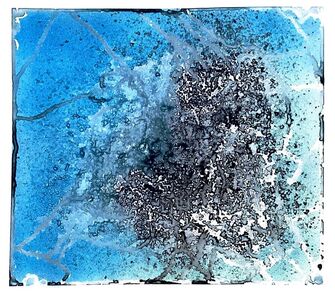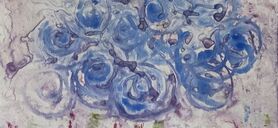|
Crafting Intentions: The Ethos of Literary Imagination in Early Modern Persian Literature
[Manuscript in progress] Crafting Intentions explores the ethos of creative imagination among Persian poets, scholars and scribes, who were active in South and Central Asia between the 1290s and 1350s, with the aim of probing the popular perception of this period as one of creative lull and decline. Most notable among the poets who were active during this period are Humām Tabrīzī (d. c.1314), Shabistarī (d. c.1320), Nizārī Quhistānī (d. c.1322), Amīr Khusrau (d. 1325), Khvājū Kirmānī (d. c.1329), Ḥasan Dihlavī (d. c.1337), Auḥadī (d. 1338), Nakhshabī (d. c.1350) and Akhsitān Dihlavī (d. c.1351). Based on a range of previously unstudied sources, Crafting Intentions shows that this period was not only rife with creative experimentation necessary for the survival and efflorescence of classical Persian literature but also instrumental in facilitating the cross-regional exchange of ethical values, literary tastes, intellectual concerns and material texts in South and Central Asia. |
Gōdhūlī / गोधूली | Watermedia Monotype | © 2024 Pranav Prakash
|
|
Nigāh / निगाह | Watermedia Monotype | © 2024 Pranav Prakash
|
Early Modern Jottings in Modern Notebooks: The Material Remains of Mughal Sanskrit in Rudra Kavi's Campū Kāvya
[Manuscript in progress] This is a critical study of three manuscripts from the British Library that orginally constituted a single notebook by an early modern Sanskrit poet named Rudra Kavi. Previous studies have unanimously held that Rudra Kavi was an exceptional court poet whose compositions were corrupted by the callous hands of later scribes. Based on a material and textual analysis of these manuscripts, along with a documentation of the correspondence among colonialist officers regarding the protocols of hiring of Sanskrit scribes, my monograph narrates the story of how a 19th-century scribe from Mumbai, who had carefully copied a notebook of a minor court poet, was implicated for the incomplete compositions of the court poet. Building on this case study, my monograph argues for identifying "notebook" as a distinct and valuable codicological category that elucidates how poets and authors exercise their creative imagination in their efforts to create a thing of beauty. In contrast to notebooks, manuscripts of completed works are designed to mask the raw creative processes and literary experiments of poets and writers. Given that manuscripts collectors in colonial India refrained from collecting incomplete works, notebooks or similar ephemerae, Rudra Kavi’s manuscripts are rare sources for illuminating the strengths and limits of archival inquiry, literary historiography and Mughal Sanskrit. |
|
A Book of Love by Ḥasan Sijzī Dihlavī
[Critical Edition and Translation in Progress] Although the dīvān of Ḥasan Sijzī Dihlavī has been critically edited six times between 1933 and 2008, none of these scholarly editions contain a complete text of his Book of Love (ʿIshqnāma). This mystical romance by Ḥasan Sijzī Dihlavī was one of the most influential works of Sufi poetry and was circulated widely in Persian and South Asian communities. My critical edition is based on extensive archival research that led to the discovery of some two hundred previously unexamined manuscripts of Ḥasan’s literary oeuvre scattered in India, Iran, Armenia, Turkey, Central Asia, Europe and the US. |
Bāgbānī / बागबानी | Watermedia Monotype | © 2024 Pranav Prakash
|



